detail profile marek kondrat
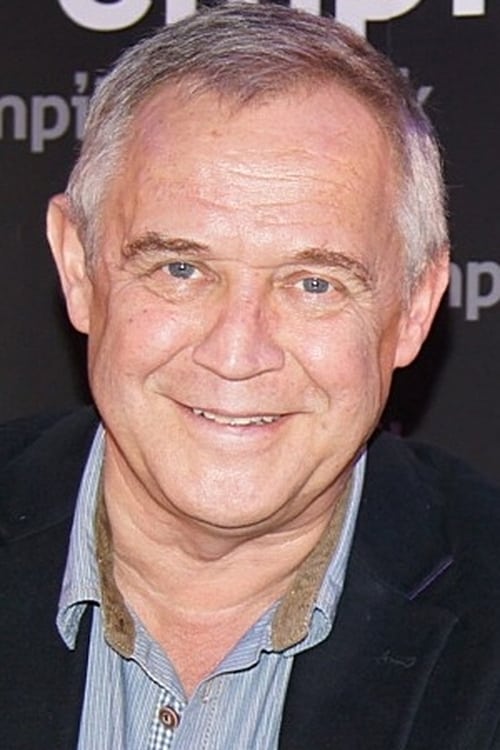
Marek Kondrat
Марек Кондрат
atau dikenal sebagai
Riwayat Hidup
Marek Tadeusz Kondrat (born 18 October 1950) is a former Polish TV, film and theatrical actor, director.
He is a graduate of the Jan Śniadecki High School No.
30 in Warsaw.
In 1972, he graduated from the National Academy of Dramatic Art in Warsaw (PWST).
He played his first role as a child in 1961 film Historia żółtej ciżemki.
Between 1972-1973, he worked at the Stanisław Wyspiański Silesian Theatre in Katowice.
He also worked at the Dramatic Theatre in Warsaw (1973–1984, 1987–1988), French Institute (1984), New Theatre (1985–1986), Comedy Theatre (1989), Za Dalekim (1990), Ateneum Theatre (1992–1999) and Zygmunta Hübner's Theatre (2002).
His most notable roles, which made him one of the most popular actors in Poland, are featured in such films as Janusz Majewski's 1975 film Hotel Pacific, Andrzej Wajda's 1976 film Smuga cienia where he played the role of Joseph Conrad, Krzysztof Zanussi's 1981 biographic film From a Far Country, Janusz Majewski's 1985 comedy film C.
K.
Dezerterzy, Kazimierz Kutz's 1996 film Pułkownik Kwiatkowski, Marek Koterski's 2002 film Day of the Wacko and 2006 film We're All Christs.
In 2002, he was awarded the Commander's Cross of the Order of Polonia Restituta.
In 2007, he planned to revolutionize the Polish domestic wine market by introducing Winarium wine stores in every city with a population of over 100,000.
On 19 September 2015 he married Antonina Turnau, daughter of Grzegorz Turnau.
Source: Article "Marek Kondrat" from Wikipedia in English, licensed under CC-BY-SA 3.
0.
Info Pribadi
Peran Yang Di Mainkan Marek Kondrat
 It is a bitter story about...
It is a bitter story about...Day of the Wacko 2002
It is a bitter story about a middle-aged man, who hates his life and other people, including himself. Adam Miauczynski, the character known from director Marek Koterski's previous films, is a 44 year-old teacher, who reads poetry during school lessons and later goes home swearing and calling his neighbours' names. The worst pain for him is the next 5 minutes of living. He doesn't accept himself and even everyday contacts with others cause his aggression. Though constantly dreaming of a romantic love, he is not bold enough to make his dreams come true. The desperate Miauczynski personalizes our own fears and obsessions, which have become so visible recently.
 A grand and patriotic tale of...
A grand and patriotic tale of...Pan Tadeusz 1999
A grand and patriotic tale of Poland's struggle for freedom just before Napoleon's war with Russia. Written in poetic style by Adam Mickiewicz, this story follows two feuding Polish families as they overcome their old conflicts and petty lives. However, they are able to unite as one with their patriotic and rebellious efforts to free the country they deeply love from Russian control.
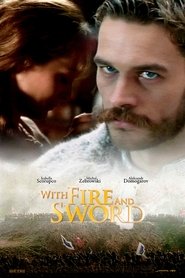 In the mid17th century Poland...
In the mid17th century Poland...With Fire and Sword 1999
In the mid-17th century, Poland was the largest, most democratic, and most tolerant country in Europe. However, a tragic civil war brought about the gradual decline of the once glorious republic... An epic story about the Ukrainian uprising against the Polish-Lithuanian Commonwealth magnates in the 17th Century.
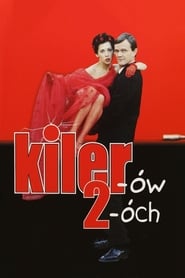 Jurek Kiler has become a VIP...
Jurek Kiler has become a VIP...Killer 2 1999
Jurek Kiler has become a VIP - sponsoring the Polish government, playing tennis with the President, meeting world leaders. He must oversee a transfer of a substantial amount of gold. However, in his past activities, he has made enemies. Mighty ones. And thus Jurek Kiler's next adventure begins as he has to face attempts at kidnapping, assassinations and problems in his love life...
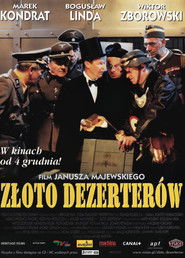 Deserters Gold the sequel to the...
Deserters Gold the sequel to the...Deserter's Gold 1998
"Deserter's Gold", the sequel to the very popular "The Deserters", is a rich war comedy, skipping humorously around the more serious dangers of a war. Deserters Gold takes place during World War II, while the first film happened during WWI. The heroes' mission is to rob a Nazi-run bank in Poland for gold that will buy military supplies for the Polish Underground.
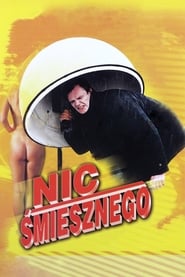 One day hospital orderlies watching corpse...
One day hospital orderlies watching corpse...Nothing Funny 1996
One day, hospital orderlies, watching corpse in the morgue, recognize film director. Man, even though he died, he begins to remember his life. He made a career making movies, had numerous mistresses, but never realized their dreams. His life was interspersed with many setbacks that enfeebled him from the inside. Although he made a career in film, he was not happy with his life.
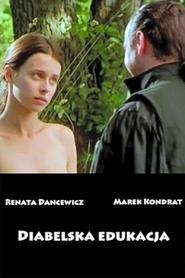 Gosia is a beautiful and innocent...
Gosia is a beautiful and innocent...Devilish Education 1995
Gosia is a beautiful and innocent young maid on the catholic countryside tending the cattle. One summer day she is having a bath in the river naked as god created her. On the next day a stranger appears painting and painting all day long. As they talk the black dressed suddenly shows her a picture showing her naked in the river. At first she is very ashamed, but then she begins to forget her shyness.
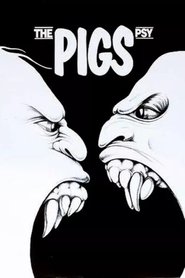 In good old days Franz Maurer...
In good old days Franz Maurer...Pigs 1992
In good old days Franz Maurer and his partners from secret police used to live like kings. Now, they all must adapt to new post-communist environment where they are scorned and losing all the privileges. Some, like Franz, are like ordinary police fighting against drug dealers. But Franz would soon find that some of his friends are on the other side.
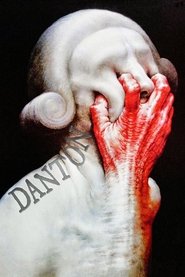 Danton and Robespierre were close friends...
Danton and Robespierre were close friends...Danton 1983
Danton and Robespierre were close friends and fought together in the French Revolution, but by 1793 Robespierre was France's ruler, determined to wipe out opposition with a series of mass executions that became known as the Reign of Terror. Danton, well known as a spokesman of the people, had been living in relative solitude in the French countryside, but he returned to Paris to challenge Robespierre's violent rule and call for the people to demand their rights. Robespierre, however, could not accept such a challenge, even from a friend and colleague, and he blocked out a plan for the capture and execution of Danton and his allies.
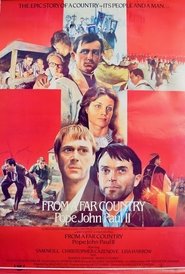 This heroic story follows the life...
This heroic story follows the life...From a Far Country 1981
This heroic story follows the life of Karol Wojtyla, a Polish Roman catholic who ascends the throne of St. Peter as Pope John Paul II. As a young boy, Karol is a bright and talented student. Archbishop Sapieha recognizes the very special, moving qualities Karol possesses and encourages him to consider the priesthood. Although determined to study Polish literature, Karol turns to the church; he is ordained and studies in Italy, France, and Belgium. Torn by fear and repression in post-Stalin Eastern Europe, Karol becomes a poisonous thorn in the communists' side. His deer reverence and commitment return him to Poland as Pope John Paul II.
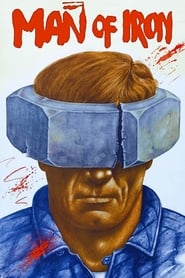 In Warsaw in 1980 the Communist Party...
In Warsaw in 1980 the Communist Party...Man of Iron 1981
In Warsaw in 1980, the Communist Party sends disgruntled radio reporter Winkel to Gdańsk to dig up dirt on the shipyard strikers - particularly on Maciek Tomczyk, an independent labour union leader whose father was killed in the December 1970 protests. Posing as sympathetic, Winkel interviews the people surrounding Tomczyk, including his detained wife, Agnieszka.
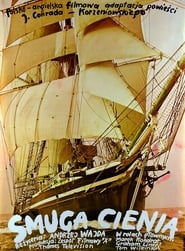 Andrzej Wajdas Englishlanguage film of a...
Andrzej Wajdas Englishlanguage film of a...The Shadow-Line 1976
Andrzej Wajda's English-language film of a novella by Józef Teodor Konrad Korzeniowski, aka Joseph Conrad, about a young man in his first command as a sea captain. A series of crises prove incredibly difficult for his new authority, for the sea is curiously becalmed and the crew is weakened by feverish malaria. When the first mate's fear convinces many that the ship is haunted and cursed by the malevolent spirit of the previous captain, the young man must cope with their superstition as well as the conspicuous absence of much-needed medicine.
 The film is based on the...
The film is based on the...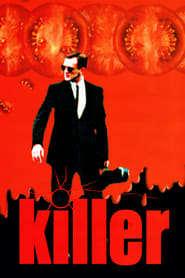 An innocent cab driver is mistaken...
An innocent cab driver is mistaken...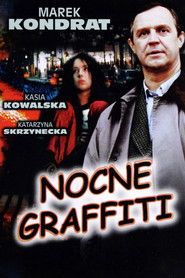
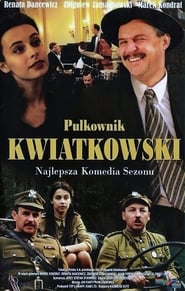
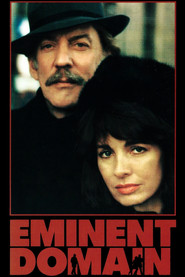 A highranking Polish politburo member is...
A highranking Polish politburo member is...
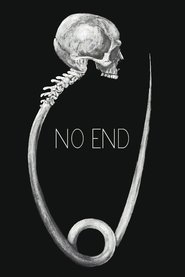 1982 Poland A translator loses her husband...
1982 Poland A translator loses her husband...